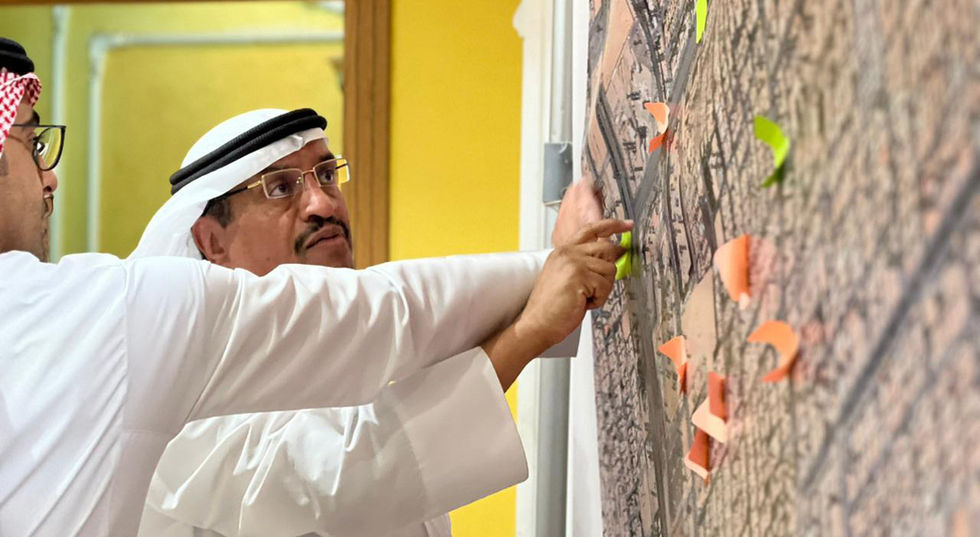Status:
Completed
Years:
2023
-
2024
Client:
Saudi Ministry of Municipal, Rural Affairs and Housing
Roles:
Multi-scalar analysis of key urban issues, development of spatial framework for pilot neighbourhood regeneration.
Transforming the inner city through incremental & participatory regeneration
The Urban Regeneration Umbrella Program (URUP) aims to define a national policy framework and an associated national program to trigger inclusive and sustainable multi-stakeholder urban regeneration at scale across the Kingdom. The first phase of the programme targets inner-city areas, which are progressively being abandoned by Saudi citizens in favour of new, residential expansions promoting sprawl. The consortium team developed a Framework for Collaborative Urban Regeneration for inner-city neighbourhoods in Saudi cities, piloting a participatory study in a central district of Riyadh. The proposed framework aims to enhance sustainable urban living by compacting and densifying the city, increasing mixed-use development, and revitalizing overall central areas through well-distributed services and facilities. The framework aims to maintain the identity of regenerating areas and increase Saudi homeownership, while contributing to a well-connected and well-balanced network of well-serviced neighbourhoods.
The team has conducted a spatial, real estate and an environmental analysis and an engagement process that brought diverse actors (citizens, developers, governmental institutions) together to strategize on appropriate interventions on both public and private realm, as well as on the most appropriate incentives, procedures, and regulations for activating such a collaborative urban regeneration framework. The result is a complete framework (spatial, normative, and financial) targeting the physical, environmental, financial and regulatory components of the urban regeneration in an integrative manner by linking housing typologies and urban design/public realm transformation to financial mechanisms, regulatory planning tools and greening measures.
Bantu provided the overall technical guidance to the consortium, taking care of strategic oversight and quality control of the entire process as well as of each of the contractual deliverables. This included developing a multi-scalar analysis of key spatial and urban aspects (e.g., mobility, urban structure, etc.) at the macro, meso and micro scale. Bantu also led the development of Spatial Framework for the King Fahad District Pilot, and is currently finalizing the Final Report, summarizing all the phases and the outcomes for the process, and detailing a way forward for the development of an ad-hoc National Urban Regeneration Program for the Saudi Ministry of Municipal, Rural Affairs and Housing (MoMRAH).










